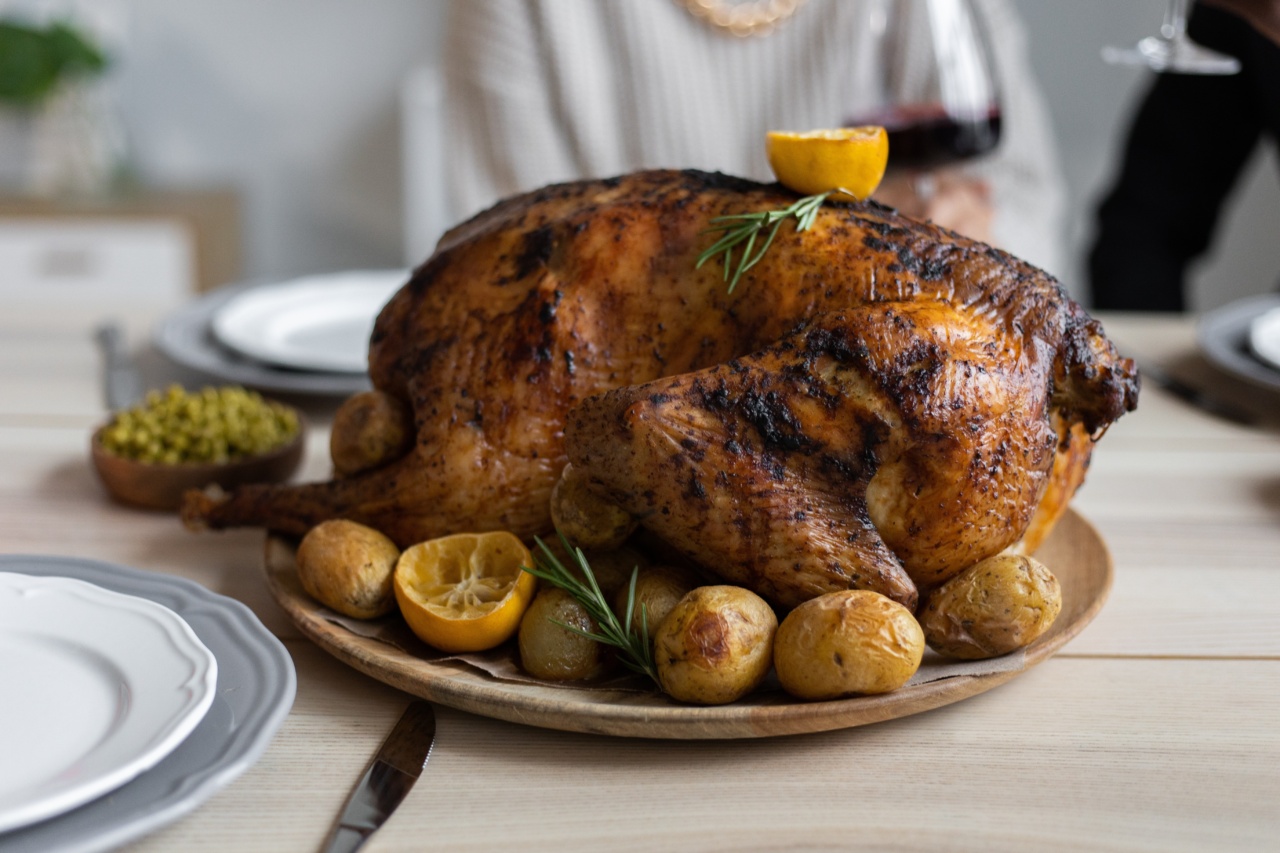Turkey is one of the most popular foods consumed during special occasions and celebrations, particularly during Thanksgiving and Christmas.
However, it is important to understand that there are risks associated with consuming turkey if it is not handled, cooked, and stored properly. This article aims to educate readers about the risks of food poisoning from turkey, and what measures can be taken to ensure its safe consumption.
Causes of Food Poisoning from Turkey
The causes of food poisoning from turkey can be attributed to several factors, including:.
Contamination
Contamination of turkey can occur during several stages of processing, including slaughtering, cleaning, and packaging.
It can also occur during transportation and storage, which can lead to the growth of harmful bacteria such as salmonella and campylobacter.
Undercooked Turkey
Undercooked turkey can also lead to food poisoning. This is because raw or undercooked turkey can contain harmful bacteria such as salmonella and campylobacter, which can cause symptoms such as fever, stomach cramps, and diarrhea.
Cross-Contamination
Cross-contamination can also lead to food poisoning from turkey. This occurs when utensils and surfaces used to prepare raw turkey come into contact with other foods, such as fruits and vegetables.
This can result in the transfer of harmful bacteria to these other foods, which can cause foodborne illness.
Symptoms of Food Poisoning from Turkey
The symptoms of food poisoning from turkey can range from mild to severe, and can occur within a few hours to several days after consumption. Some of the common symptoms include:.
Fever
Fever is a common symptom associated with food poisoning from turkey. This occurs due to the presence of harmful bacteria in the body, which can cause the body’s temperature to rise above normal levels.
Stomach Cramps
Stomach cramps are another common symptom of food poisoning from turkey. This can occur due to the presence of harmful bacteria in the gut, which can cause inflammation and irritation.
Diarrhea
Diarrhea is a common symptom associated with food poisoning from turkey. This occurs due to the body’s attempt to flush out harmful bacteria from the gut, which can lead to watery and loose stools.
Nausea and Vomiting
Nausea and vomiting are common symptoms associated with food poisoning from turkey. This occurs due to the presence of harmful bacteria in the stomach, which can cause irritation and inflammation.
Preventing Food Poisoning from Turkey
There are several measures that can be taken to prevent food poisoning from turkey, including:.
Proper Storage
Turkey should be stored at a temperature of 40 degrees Fahrenheit or below to prevent the growth of harmful bacteria. This means that it should be stored in a refrigerator within 2 hours after purchase or preparation.
Proper Handling
Turkey should be handled properly to prevent contamination. This includes washing hands thoroughly before and after handling turkey, using separate utensils for handling raw turkey, and disinfecting surfaces that come into contact with raw turkey.
Proper Cooking
Turkey should be cooked to an internal temperature of 165 degrees Fahrenheit to ensure that harmful bacteria are destroyed.
This can be checked using a meat thermometer, and the temperature should be checked in multiple locations to ensure that the entire turkey is cooked properly.
Avoiding Cross-Contamination
Utensils and surfaces that come into contact with raw turkey should not be used to prepare other foods, especially fruits and vegetables. This can prevent the transfer of harmful bacteria to these other foods.
Conclusion
Food poisoning from turkey can be a serious issue if proper precautions are not taken. It is essential to understand the risks associated with the consumption of turkey and implement measures to prevent foodborne illness.
Proper storage, handling, cooking, and avoiding cross-contamination can go a long way in ensuring the safe consumption of turkey.




























